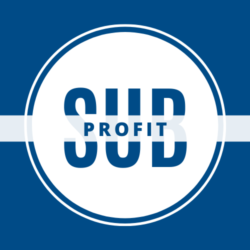IBM Food Trust is a blockchain-based platform
IBM Food Trust is a blockchain-based platform that aims to increase transparency and traceability in the food supply chain. It allows food producers, distributors, and retailers to share information about the origin, handling, and quality of food products with each other and with consumers. This can help reduce food waste and improve food safety by enabling more efficient recall of contaminated products. IBM Food Trust uses the Hyperledger Fabric blockchain framework and is available as a cloud-based service. It was first announced in 2017 and has been adopted by a number of major food companies.
IBM Food Trust how it works?
IBM Food Trust works by creating a decentralized database of food supply chain information that is stored on a blockchain. This database is shared among all the participants in the food supply chain, including producers, distributors, and retailers. Each participant has their own copy of the database, and new information is added to the database in the form of transactions that are recorded on the blockchain. The transactions are validated by network participants and added to the blockchain in blocks, creating an immutable record of the information.
To use IBM Food Trust, food supply chain participants first need to create a digital identity on the platform. They can then add information about their products to the database, such as the origin, handling, and quality of the products. This information is verified by other participants in the network, and once it has been verified, it is added to the blockchain in the form of a transaction.
Consumers can access information about the products they purchase by scanning a QR code on the product packaging. This QR code contains a link to the product’s information on the IBM Food Trust database, allowing consumers to view the product’s supply chain history and verify its authenticity.
IBM Food Trust can be used by various participants in the food supply chain, including producers, distributors, and retailers.
- Producers can use IBM Food Trust to track the origin, handling, and quality of their products and share this information with other participants in the supply chain. This can help them improve the traceability of their products and increase consumer confidence.
- Distributors can use IBM Food Trust to track the movement of products through the supply chain and ensure that they are handling and storing products correctly. This can help them reduce food waste and improve the efficiency of their operations.
- Retailers can use IBM Food Trust to verify the authenticity and quality of the products they sell and share this information with consumers. This can help them build trust with their customers and improve their reputation.
Overall, IBM Food Trust aims to increase transparency and traceability in the food supply chain, which can help reduce food waste and improve food safety.
IBM Food Trust can help improve supply chain efficiencies
IBM Food Trust can help improve supply chain efficiencies by increasing transparency and traceability in the food supply chain.
One way it does this is by providing a centralized, digital record of the handling and quality of food products. This can help reduce the time and effort required to track and verify the authenticity of products, as information is easily accessible and verifiable on the blockchain.
IBM Food Trust can also help reduce food waste by enabling more efficient recall of contaminated products. If a problem is detected with a product, the blockchain can be used to quickly identify the source of the problem and trace the movement of the product through the supply chain. This can help minimize the impact of the problem and prevent it from spreading.
Additionally, IBM Food Trust can help improve the efficiency of the supply chain by enabling better collaboration and communication among supply chain participants. By sharing information about the handling and quality of products on the blockchain, participants can work together more effectively to ensure that products are delivered safely and efficiently
IBM Food Trust helps with FDA compliance
IBM Food Trust can help food supply chain participants comply with Food and Drug Administration (FDA) regulations and requirements.
The FDA has established a number of regulations and guidelines to ensure the safety and quality of food products. These include the Food Safety Modernization Act (FSMA), which requires food producers, processors, and retailers to implement preventive controls to minimize the risk of foodborne illness.
IBM Food Trust can help food supply chain participants meet these requirements by providing a centralized, digital record of the handling and quality of food products. This record can be used to trace the movement of products through the supply chain and identify any potential issues or risks.
For example, if there is a food safety issue or recall, IBM Food Trust can help identify the source of the problem and facilitate the recall of contaminated products. This can help protect consumers and ensure compliance with FDA regulations.
A blockchain-based marketplace for farmers
A blockchain-based marketplace for farmers could be a platform that allows farmers to buy and sell agricultural products and services using blockchain technology.
One potential advantage of using a blockchain-based marketplace is that it could provide a secure and transparent way for farmers to conduct transactions. Since a blockchain is a decentralized digital ledger that records transactions in a secure and transparent manner, it could be used to track the movement of goods and services within the marketplace. This could help to reduce the risk of fraud or other types of misconduct, as well as provide a clear record of the transactions that have taken place.
Another potential advantage of a blockchain-based marketplace for farmers is that it could provide a way for farmers to connect directly with buyers, bypassing intermediaries such as wholesalers or distributors. This could potentially allow farmers to receive a larger share of the sale price for their products, as they would not need to pay fees to intermediaries.
There are already several examples of blockchain-based marketplaces for farmers that are currently in operation. These platforms allow farmers to list their products and services for sale, as well as connect with buyers who are interested in purchasing them. Some of these marketplaces also use blockchain technology to track the provenance of the products, providing consumers with information about the origins and conditions under which the products were grown or raised.


